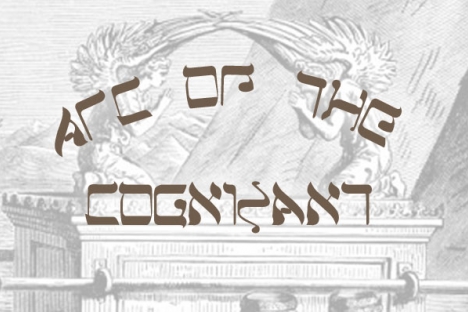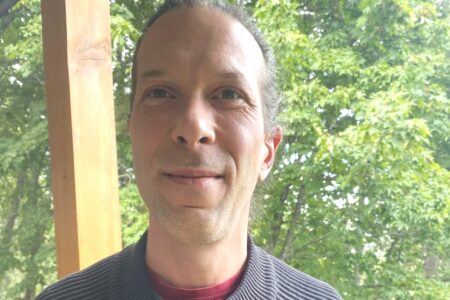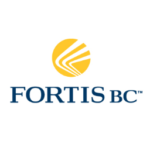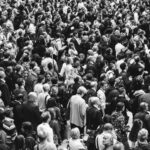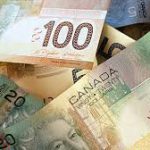Column: Canada among empires: colonial dependency and feeble defenses
Parts of an Empire
Russians of the former Soviet imperial power, in the period 1945-90, with their formal annexations [e.g. Armenia, Ukraine], client states [Mongolia, Cuba], and occupied satellite nations [Poland, Romania] regarded Canada as belonging to America’s empire, not different in status from Soviet imperial dependencies. Canada was a solidly-American client, a dependency, a quasi-protectorate.
Did Canadians know? Not likely. Did we object if Russians said so? Oh yes.
But maybe Canada has never has stood independently, as the US, UK, and France most definitely have, as a “sovereign state,” with an economy not dependent on one major market, one major investor, one major ally-cum-defender over us. Canada, except during WWII, is a quasi-colonial land.
That is my contention.
Canada has been unable to stand as a peer to the three nations I name above, two of which are “mother countries” in our colonial history, and the first of which is our swollen superpower neighbor. We have not tried to rectify this.
Our most-independent moment in history: Autumn, 1945
If I had to point to the moment in time Canada was most independent, I would point to the period just after WWII when the Axis Powers and Imperial Japan were completely prostrate, their militaries smashed, their peoples, economies and lands destroyed by the war they had lost against the Allies. We were the fourth-largest military power in the world once our foes surrendered.
At this point, Canada stood as high in the opinion of something we like to call “the international community” [see Appendix] as we have ever been, one of three liberating armies invading Hitler’s Fortress Europe from the Normandy beach-heads and earning gratitude from the Dutch, French, and Belgians as we marched. Henceforth, Canadians clearly upheld UN-led global law-and-order.
[ for a history of the Normandy army: https://www.liberationroute.com/themed-routes/68/in-the-footsteps-of-the-canadian-liberators This is a site for detailed micro-history of Canadian WWII activities.]
It was a moment in time only; Canadians had no intention of keeping forces for global geopolitical power once peace was made. We let the US and UK do that.
Middle Power, UN, and the long decline
Our moment of prominence passed, while our leaders played the necessary roles well, particularly Mackenzie King and Lester Pearson. We were absolutely integral to the atomic-bomb project of the US and UK, and in articulating ideals for the new United Nations [UN]. The UN has been a polestar for Canada.
Next, we pulled significant weight in the international community as a “middle power” and we put sufficient funds into our military to maintain the respect of our NATO allies in the Cold War, until the 1960’s.
[for a proud and favourable view of our early middle-power policy: https://opus.uleth.ca/server/api/core/bitstreams/7276c46a-07e3-4cc7-b634-3b6662419cca/content ]
The times when Canada mattered a lot, are over. Along the historical path of our decline lies the unraveling of a national economy capable of serious, proven independence. Personally, I have been a nationalist for our economy since my university days; I vigorously opposed P. M. Mulroney’s 1988 Free Trade agenda, campaigning, writing letters, appearing on local Nelson television to argue opposition to the dissolution of economic foundations for independence.
Now we face an American President as openly aggressive as any since the War of 1812. He is aware of how economically vulnerable Canada is, and if has not been quite so bold in his words, about making Canada part of the USA as he has about Greenland, I have no doubt at all that Donald Trump has no moral qualm about using force to bring Canada to heel if he wants to do it. The news story of his threat to that Danish territory quotes him:
“As for Greenland, the president said when asked to clarify whether he would rule out using military force on the territory that “I don’t rule it out, I don’t say I’m going to do it, but I don’t rule out anything, no — not there.”…”We need Greenland very badly,” he added. “Greenland is a very small amount of people we’ll take care of, and we’ll cherish them and all of that, but we need that for international security.”
Canadians have not created a nation-state capable of military resistance to American annexation, in my opinion; by the record of voluntary dependence throughout our last century of history, we chose to be feeble, to reap the advantages of tiny defense expenditure and single major trading partner.
Our erstwhile friend is ruled now by a President admiring Putin and his Ukraine coup-de-main and empowering Netanyahu’s regional hegemony. [+#Appendix]. An American Dictator would be Canada’s darkest prospect.
Getting real about losing independence
Canada is not unique in its dependence on one very large neighbor-state, but we are unique in the vulnerability of our state to that neighbor, a superpower sharing our only land border and no possibility any other state could stop the neighbor taking over the populated economic territory of Canada, all of it so close to the neighbor. An invasion need only target a very small land area here.
Ireland was once part of the UK and had no choice in its dependence, but once the Republic became independent, it found alternatives. Mongolia, in my judgment, is as unable as we to defend itself from neighbours, Russia and China; but the fact of two great states along its border guarantees neither of those will annex Mongolia, but share it; Paraguay too, vis-a-vis Brazil.
Andrew Coyne, perhaps Canada’s best journalistic mind, understanding politics and economics, has foreseen a Trump dictatorship very near to realization. [see Globe and Mail August 29, Opinion] He doesn’t draw my conclusion: a dictator in the US who wants Canada will invade Canada.
From this point in my essay, my assumption is that Trump will indeed gain dictatorial powers in the US in defiance of its Constitution. A dictator who wants Canadian water [*Appendix], oil, trees, metals, hydro-electricity, etc. will not rule out “the military solution” to his desires. [i.e. think like Netanyahu seems to.]
I do note that President Trump would not say that force was an option with Canada: “President Trump said he would talk to Canadian Prime Minister Mark Carney about making Canada the 51st state. But the president said he didn’t expect it to get to the point of using military force …he added “I don’t see it with Canada. I just don’t see it.” ” https://www.cbsnews.com/news/trump-greenland-military-force-canada/
War is too terrible to talk about casually, and I will not. But since the President’s musing about making Canada the 51st state in the US, there have been plenty of writings pretending to seriousness, on the topic of how Canada could fight an American invasion. I am appalled at the ignorance of the writers, literally; they ignore what war is, what it does, how it leaves enduring scars.
War is too horrible for the kind of bloodless, arid theorizing I read in articles like this, but it seems an irresistible temptation to all sorts of armchair military and political ‘experts’:
https://macleans.ca/society/canada-51st-state-america/
https://theconversation.com/why-annexing-canada-would-destroy-the-united-states-249561
Such prediction is to me unconscious, unthinking nonsense, pandering to low patriotism, to a mindset created by violent entertainments that believe the ‘death or glory’ visions, of juvenile machismo-stoked brains that simply are not functioning well.
To such ‘analysts’ I want to say, “Think about death, loss, horror — these certainties of war. Do you seriously consider that reality?”
Conclusion: Canadians under occupation?
I believe it is unthinkable we should attempt to use force to resist if we are invaded by the USA, and suffer the consequences of force. Independence would not be worth the suffering of war, death, material destruction, the agonies of the wounded and the annihilation of urban infrastructure and open land.
Americans themselves will not unite to annex Canada, and invading us might well spark civil war among them, which would likely benefit us. I fear no annexation, because ultimately, Americans themselves would put a stop to any war of conquest as so many of them would oppose the act and make chaos in their homeland, ensuring the invasion would be temporary. We would abide.
Our challenge will be to design a response while we anticipate peace in the certain evacuation of Canada by the occupying forces. A response minimizing violence and deaths in Canada: Peace with integrity, dignity, and endurance.
Until the Americans turn back and cease their invasion and occupation, we do resist — but not militarily, not with force. We can resist, and must, with the method of Mahatma Gandhi: satya graha.
What is satya graha? Resistance. Principled, non-violent, noble, effective.
https://www.mettacenter.org/satyagraha-nonviolent-resistance
https://philosophy.institute/gandhian-philosophy/principles-techniques-satyagraha-gandhi-change/
https://www.mkgandhi.org/articles/relevance-of-Satyagraha-as-a-weapon-of-conflict-resolution.php
I anticipate readers will object to my pacifism; I stand by my conviction.
_______________________________________________________________________
Appendix
* Trump and Canadian water:
https://thetyee.ca/Analysis/2025/02/18/Trump-Obsession-Canada-Water/
+# Trump and international order:
https://www.aei.org/op-eds/its-a-strongmans-world-and-were-just-living-in-it/
Extra reading
An essay about the collapse of “the international order” Canadians have loved – and endorsed by our policies.
An essay about the interdependence of the US and Canada in employment.
https://www.econ.queensu.ca/sites/econ.queensu.ca/files/student_papers/579.pdf
An interview about American invasion of Canada, to see how some exemplary public intellectuals speak about it. The two people interviewed are ‘experts’.
https://www.peacequest.ca/p/is-a-us-invasion-of-canada-so-unimaginable
A cold, rational, predictive assessment of what Trump might attempt.
https://blogue.corim.qc.ca/preparing-canada-trump/
“Trump may believe that he alone can “solve” certain wicked global problems. However, it is altogether possible that any heroic such attempt will issue in chaos that he cannot anticipate by dint of lack of experience and geopolitical understanding.”
Last, a piece about our youth, Gen Z, and their attitude to defending Canada.
extra additional reading for those with a serious political-philosophy inclination. [like me]
https://democracyjournal.org/magazine/77/liberalism-without-illusions/
“Liberals favor peace over war, plenty over penury, freedom over tyranny, and the rule of law over rule by decree. They embrace the moral equality of all human beings and the equal civic standing of all citizens. They believe that individuals enjoy a zone of immunity from state power. And they insist that consent, not coercion, is the basis for legitimate political authority. … Unfortunately for them, and for all of us, history has no side, and regression to past horrors is always possible. Despite the hopes evoked by the end of the Cold War, neither Russia nor China democratized, the global spread of democracy reversed, religious zeal resurfaced, the cost of globalization became evident, nationalist passions intensified, and the spread of cultural liberalism generated a backlash. As internal divisions deepened within established liberal democracies, long-muted passions reemerged, as did the kinds of leaders who understood how to use these passions for illiberal purposes.”
Canadians – a large fraction, certainly a majority – are liberals as described above, IMO.
The future requires us to be clear-eyed about the prospects of our beloved homeland.


